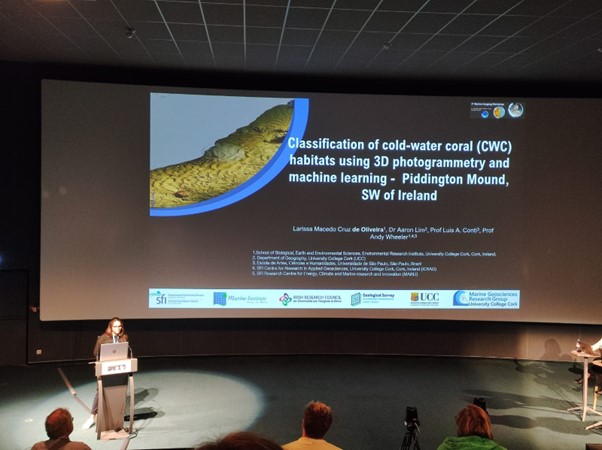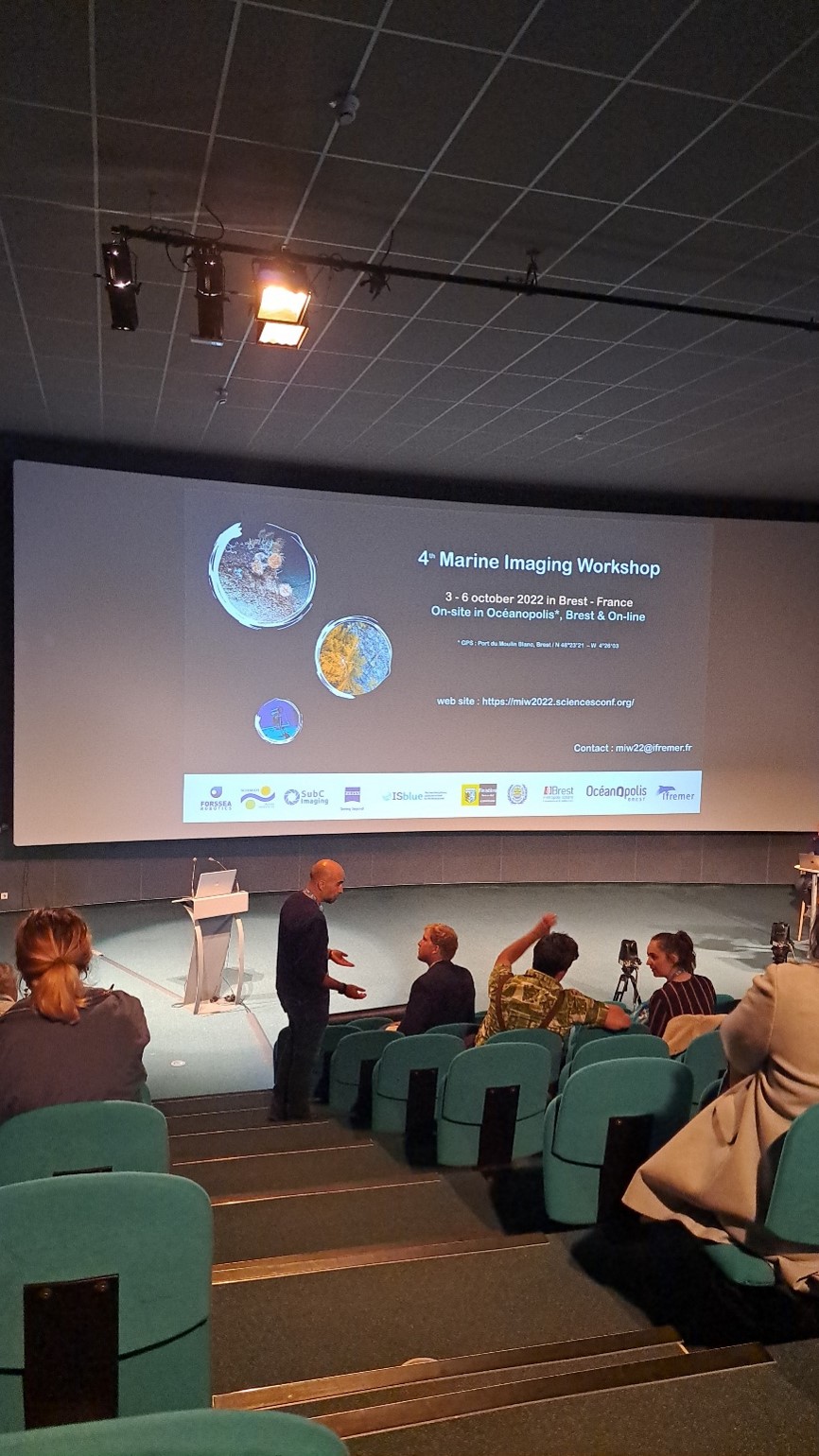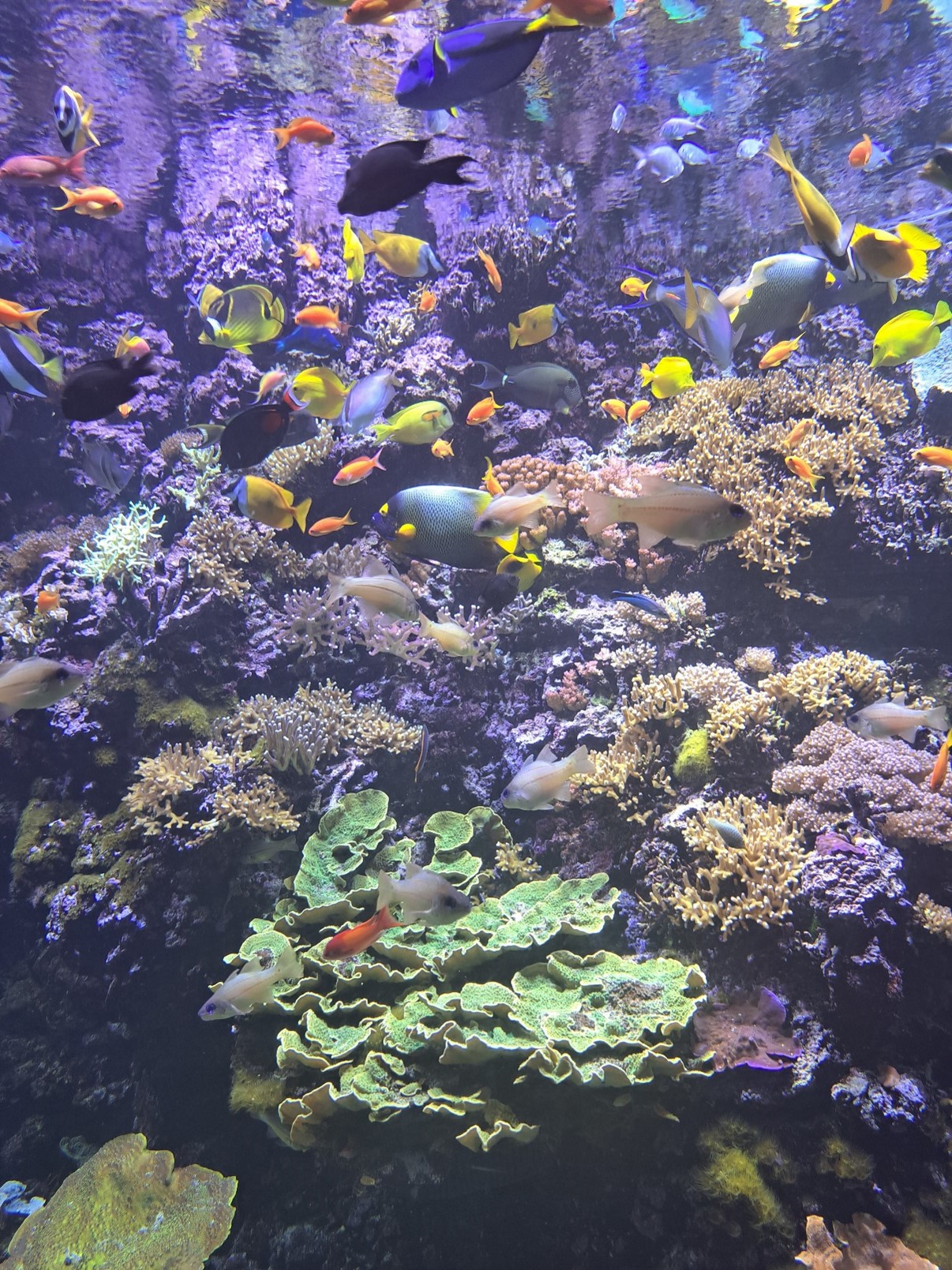Larissa presents at the 4th Marine Imaging Workshop, Brest, France

Larissa embarked on a French tour to the 4th Marine Imaging Workshop this month
In October, I travelled to Brest, France to present my latest research findings at the 4th Marine Imaging Workshop (MIW2022). I will tell you all about it in the next few paragraphs!
The MIW2022 is a biannual event organised by the Marine Imaging Community as a global effort to gather researchers, methods, policy and novel research in marine imaging. The workshop brings together a cohort of around 100 scientists, engineers and industry partners from different disciplines to advance boundaries in marine imaging. The workshop aimed to cover everything related to marine imaging analysis such as: forms of acquisition, planning, image collection, pre-processing, annotation and FAIR data management. It ranges from all types of images, from benthic and macrofouna, to micro and pelagic images.
This year’s event was organised by IFREMER, and in my opinion, they chose a great conference venue the Oceanopolis, in Brest. The Oceanopolis aquarium holds 1000 different marine species and 77 aquariums. We could not ask for a better venue to host an marine workshop in Brest.
The workshop had an intense schedule of conferences and hands-on workshops with more than 60 presentations and 4 workshops that were carefully tailored to cover a wide range of topics: from platforms and sensors, to automated image processing. See the complete programme of the conference here.
My presentation was part of the session “Scientific advancements in biology and geology using (underwater) imagery data”. I received some great questions about the potential of Structure-from-Motion for different mapping and annotation tasks and was happy with the positive feedback.
I also got the chance to network with a diverse group of researchers and meet a few researchers that I have been following since the beginning of my PhD such as Autun Purser (Alfred-Wegener Institute, Germany), Oscar Pizzaro (Norwegian University of Science and Technology, Norway), Fanny Girard (MBARI, US) and Timm Schoening (Geomar Institute, Germany) , to name a few.
A few key takeaways of the conference were the need to make marine imaging data FAIR, to standardize methods and to promote capacity building for future advancements.
I would like to thank the Ocean Schmidt Institute and ISBLUE for the travel grant. I am looking forward to the next conference in 2024.

Figure 1: First day of presentations at the Marine Imaging Workshop

Figure 2: One of the 77 aquariums of the conference venue, the Oceanopolis in Brest. They have an exquisite collection of more than 1000 marine species. You can easily spend 4 hours visiting their 3 pavilions.
Marine Geosciences Research Group
University College Cork
Contact us
School of Biological, Earth and Environmental Sciences, North Mall Campus, University College Cork, North Mall, Cork City, T23 TK30
